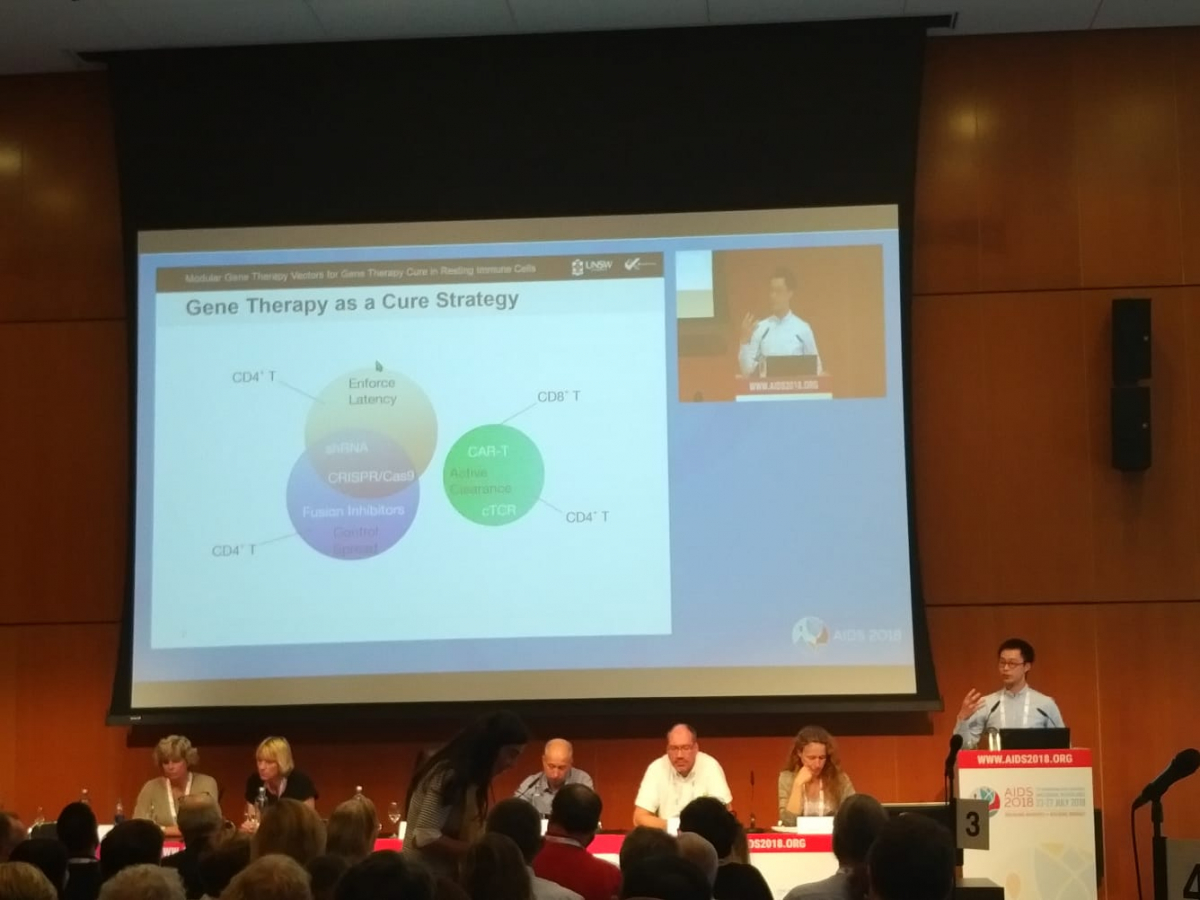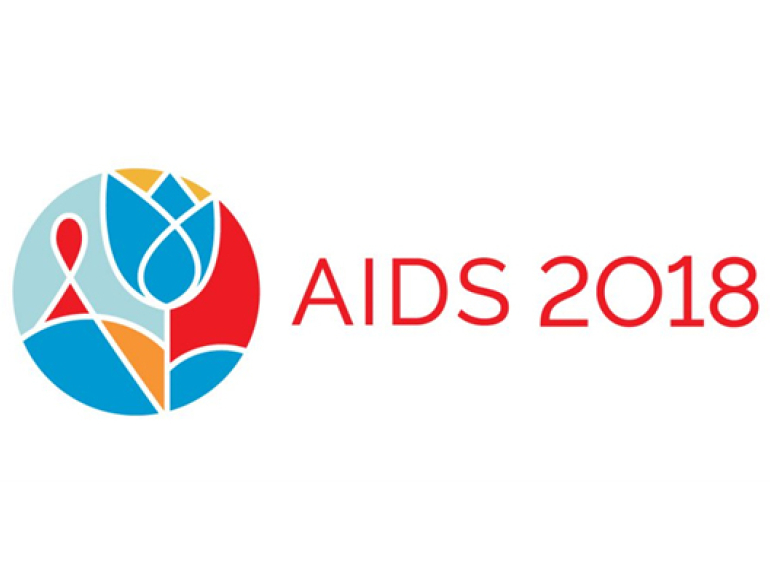Andrew Wong from the Kirby Institute’s Immunovirology and Pathogenesis Research Program presented his abstract, titled Modular Gene Therapy Vectors for Gene Therapy Cure in Resting Immune Cells, at the AIDS 2018 Conference in Amsterdam on Tuesday, local time.
This research focusses on facilitating gene therapy of immune cells, specifically CD4 T cells, which are a target of HIV. Significantly, he and his colleagues discovered that this can be done without majorly altering the internal state of the cell and increasing the safety of the therapy tested. “Other methods tend to heavily manipulate immune cells, especially CD4 T cells, before attempting to genetically modify them,” explains Mr Wong, who is working with Associate Professor Stuart Turville and Dr Anupriya Aggarwal on the project. “However, our approach enables genetic modification of cells with zero manipulation, which can translate into better long-term outcomes of gene therapy.”

Mr Wong and his colleagues also found a use of the viral protein called Vpx, which is a protein that is made by both HIV-2 and other simian immune deficiency virus (SIV) variants. It can increase the level of gene delivery within human macrophages, untouched CD4 T cells, and potentially certain types of stem cells. However not all Vpx proteins are created equally, with many isolated from SIVs that are found in a wide range of primates, such as macaques, sooty mangabeys, mandrill and drill monkeys. Using screening technologies, like those used in drug screening, at the Kirby Institute, they have identified one Vpx variant that increases gene delivery 10 to 20 times greater in both macrophages and CD4 T cells. “This work is exciting, as we have demonstrated that this method of gene therapy is highly efficient, with the material needed for therapy shown to be10 to 20 times lower than present systems,” said Mr Wong. “This has a significant impact on cost, and in turn accessibility, in a clinical setting of gene therapy. In theory, this gene therapy could not only form the basis for the development of a cure for HIV, but also improve other forms of gene therapy that are having significant impact in the area of cancer,” said Mr Wong.
Andrew was recently awarded his PhD on this topic, under the supervision of Associate Professor Stuart Turville and Professor Anthony Kelleher. His research focusses on the development of gene therapy vectors to achieve a functional cure for HIV-1. The results of this project were the basis of his PhD and will be published in the coming months.
